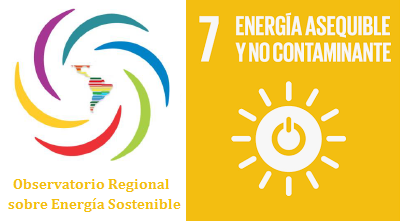Taller final Base de Indicadores de Eficiencia Energética BIEE- Caribe
Área(s) de trabajo
Resumen
On 21 June 2018, energy experts came together to discuss their experiences in gathering and analysing energy efficiency (EE) indicators, as well as the challenges and lessons learnt in gathering EE data.
Información del evento

Fecha
21 - 22 Jun 2018, 05:00 - 13:30Tipo de evento
After analyzing the strengths and weaknesses of the energy efficiency programmes that the region's countries have been implementing, the Natural Resources and Infrastructure Division's (DRNI) Natural Resources and Energy Unit (NREU) has reached the conclusion that one of the main obstacles has been the lack of information and indicators to facilitate a quantitative, full and integrated analysis of the evolution of said policies with the objective of making policy interventions based on solid information. In addition, the quality of the statistics and the performance indicators to quantify results of national energy efficiency programmes in Latin American and Caribbean countries has been deficient. As a way to overcome this shortcoming, the ECLAC has created the Regional Programme BIEE (Energy Efficiency Indicators Database for Latin America and the Caribbean).
Following the technical-political process and the operating logic of the most successful energy efficiency and analysis Programme in the world, the ODYSSEE Programme (http://www.odyssee-mure.eu/), developed by the European Commission and managed by the French Agency ADEME (Agence de l'Environnement et de la Maîtrise de l'Energie) and with the aim of producing a series of specific and methodologically consistent indicators that allow the evolution of national energy efficiency programmes to be measured, analyzed and - consequently - for appropriate policy decisions to be made. The ECLAC has undertaken the task of training and coordinating actions in the region's countries to develop a common tool that facilitates this task to track energy efficiency (SDG7.3).
The main objective of this workshop is strengthen the technical capabilities of the Caribbean countries to track implementation of SDG 7.3 and use indicators to develop [policies based on evidence.
The training, which was the last in a series of workshops held at intervals over the last 12 months, facilitated a review of the first set of country reports from the four countries. During the series of workshops, participants have been exposed to the BIEE methodology.
The BIEE programme seeks to strengthen the capacity of energy authorities in Latin America and the Caribbean to monitor their energy efficiency, improve data reliability and in turn enhance evidence-based decision-making on energy efficiency. The BIEE tool provides a template to gather national data for assessing and analysing policies and programmes on EE. It also facilitates the regional comparability of the energy sector, and promotes the implementation, monitoring and standardization of EE policies and programmes.
The series of workshops are a joint initiative under the project, which was managed by ECLAC Caribbean, with support from the German Agency for International Cooperation (GIZ) and the French Environment and Energy Management Agency (ADEME).
Contenido relacionado
